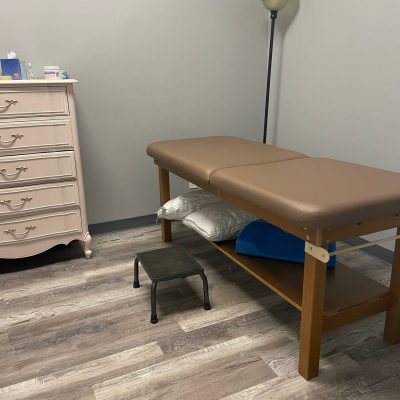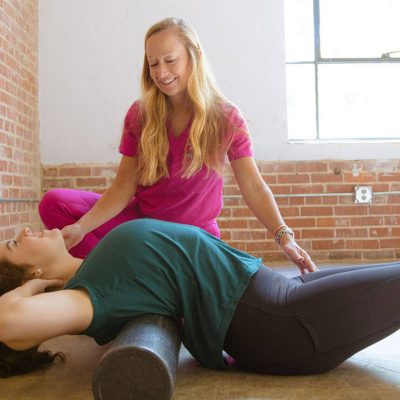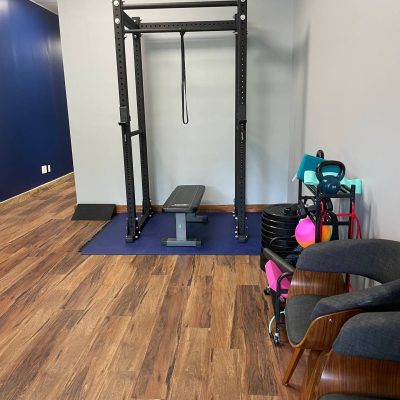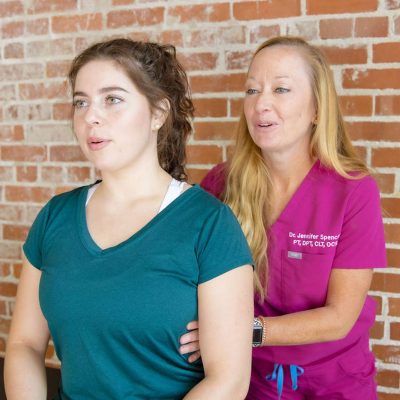When a child is struggling with focus in the classroom or seems irritable at home, we often think of sleep schedules, screen time, or academic challenges. But as a pediatric pelvic floor physical therapist, I see another powerful—and often overlooked—factor: constipation.
Constipation doesn’t just affect the body. It can impact how a child feels, behaves, and learns. In school-aged kids, chronic constipation can quietly drain energy, cloud concentration, and lead to emotional outbursts that seem unrelated to digestion.
How Common Is Constipation in Kids?
Research shows that up to 30% of children experience constipation at some point, and many cases go unreported because kids are embarrassed or parents assume it’s “just a phase.” Some children are constipated for months—or even years—without realizing that infrequent, difficult, or incomplete bowel movements aren’t normal.
Why Constipation Affects the Brain & Emotions
The gut and the brain are in constant communication through what’s called the gut–brain axis. When a child is constipated:
- The colon stretches, sending signals of discomfort or pain to the brain.
- Nerve messages become altered, increasing body tension—including in the pelvic floor muscles.
- Hormones and neurotransmitters that affect mood, like serotonin, are produced differently. (Fun fact: about 90% of serotonin is made in the gut.)
When a child’s gut isn’t working well, the brain receives a steady stream of “distress” signals, which can show up as:
- Shorter attention span
- Difficulty sitting still
- Irritability or tearfulness
- Avoidance of activities they normally enjoy
In the Classroom: The Constipation–Focus Connection
Imagine trying to listen to your teacher while you’re distracted by a stomachache, pelvic pressure, or the fear that you might have to rush to the bathroom. Many children describe feeling “full” or “tight” when constipated, which makes it hard to think about anything else.
Some kids with chronic constipation also develop toilet avoidance—especially if previous bowel movements were painful—which adds anxiety to the school day. The mental energy spent worrying about using the bathroom is energy they can’t spend on learning.
At Home: Mood & Behavior Changes
Parents often notice their child becoming more irritable or prone to emotional meltdowns during bouts of constipation. This isn’t “bad behavior”—it’s the body’s stress response.
Pain, bloating, and pelvic muscle tension can make even fun activities less enjoyable. Over time, constipation can affect sleep quality, which further impacts mood and focus.
How Pediatric Pelvic Floor Therapy Can Help
Pelvic floor physical therapy for kids isn’t just about teaching them how to sit on the toilet—it’s about restoring healthy bowel habits and reducing the physical and emotional stress constipation causes.
Here’s how we address the constipation–focus–mood connection in my clinic:
- Education for Kids & Parents
We explain in kid-friendly terms how the bowel works and why going regularly matters—not just for the stomach, but for the brain and mood.
- Improving Bowel Mechanics
We teach:
- Proper toilet posture (feet supported, knees above hips)
- Breathing techniques to help the pelvic floor relax during a bowel movement
- Avoiding straining, which can worsen pelvic floor tightness
- Lifestyle & Diet Guidance
We work with families to increase fiber, hydration, and movement—three key pillars for bowel health. Sometimes, small changes (like adding a morning glass of water or a fiber-rich snack) make a big difference.
- Pelvic Floor Relaxation Training
If constipation has led to pelvic floor muscle overactivity, we guide kids through gentle exercises and breathing patterns to help those muscles “let go” at the right time.
- Coordination with Other Professionals
For complex cases, we collaborate with pediatricians, dietitians, or mental health providers to create a full-circle plan.
Helping Your Child at Home
While professional evaluation is the gold standard for persistent constipation, here are steps parents can try:
- Create a bathroom routine: Have your child sit on the toilet for 5–10 minutes after meals, when the body’s natural “gastrocolic reflex” is strongest.
- Make hydration fun: Use special cups or straws, or add fruit slices to water.
- Keep a gentle tone: Avoid pressure or punishment for bathroom habits—constipation is not a child’s fault.
- Encourage movement: Outdoor play, bike riding, or family walks can all help stimulate digestion.
When to Seek Help
See a pediatric pelvic floor physical therapist or your child’s doctor if:
- Bowel movements happen less than three times per week
- Your child regularly strains, has pain, or passes very large stools
- They withhold stool or avoid the bathroom due to fear or discomfort
- You notice recurring mood changes or concentration issues tied to bowel habits
The Takeaway
Constipation in children is more than a digestive issue—it’s a whole-body, whole-child concern. The discomfort and pelvic tension it creates can quietly chip away at focus, mood, and daily confidence.
The good news? With the right approach, constipation is highly treatable, and improving bowel health often leads to better attention, calmer moods, and happier kids—both in the classroom and at home.
As pediatric pelvic floor therapists, our role is to help children feel comfortable in their bodies again—so they can focus less on their stomach and more on simply being kids.







